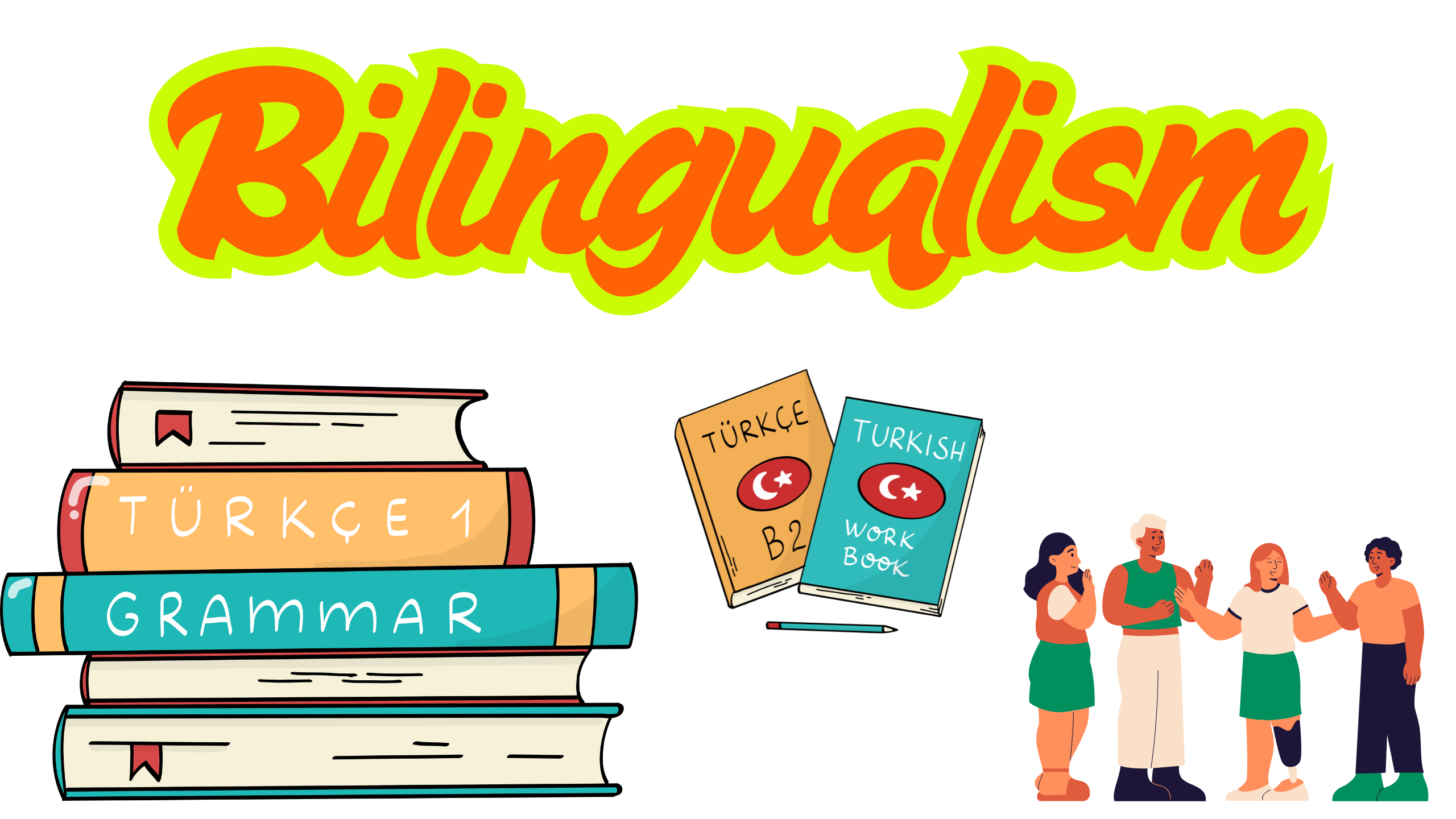Introduction

In a world that is more connected than ever, being able to speak more than one language is not just a nice skill to have; it’s a valuable asset. There are many reasons to be bilingual: personal (self)- development, academic, career goals, and to explore the culture of different places in the world. Bilingualism is a gateway to endless opportunities that go beyond just language. In our increasingly globalized world—a place where technology shrinks distances and organisations literally and figuratively expand—we see how being bilingual or multilingual provides individuals with the tools to be well-prepared to succeed among a variety of professions, cultures and communities.
Learning a second language does not simply add a second language to one’s vocabulary i.e. employ two, but it changes the way individuals think, act, and experience life. From improved cognitive thinking and function, to better work opportunities and richer travels and adventures, bilingualism enriches the mind and soul! Bilingualism also increases empathetic and cultural awareness, better understanding of other perspectives—all traits that are very valuable in our multicultural societies.
This blog will discuss the many benefits of bilingualism and show you why learning a second language is one of the most worthwhile skills you can possess. Regardless of whether you are a student, working professional, traveler, or lifelong learner; the experience of learning to be bilingual will provide you much joy for life.
1. Cognitive Advantages of Being Bilingual

Acquiring a second language is an enormous individual leap forward in cognitive performance. Bilingual people will typically be better at memory, problem solving and thinking critically. The cognitive benefit bilinguals experience is due to the act of switching between two languages, which challenges and stimulates the brain and fosters mental flexibility. Studies suggest bilinguals are particularly skilled at attention control which allows them to attend and avoid distraction more effortlessly than monolinguals. Importantly, bilingualism can postpone the onset of age-related cognitive decline and disorders like dementia. Bilingualism keeps the brain engaged and mentally fit—there is a lot of talk about “brain fitness” these days, kind of like a workout for the brain. Bilingual individuals naturally become better multi-taskers. Their brains are trained to move quickly and easily between two separate language systems.
Acquiring a second language is an enormous individual leap forward in cognitive performance. Bilingual people will typically be better at memory, problem solving and thinking critically. The cognitive benefit bilinguals experience is due to the act of switching between two languages, which challenges and stimulates the brain and fosters mental flexibility. Studies suggest bilinguals are particularly skilled at attention control which allows them to attend and avoid distraction more effortlessly than monolinguals. Importantly, bilingualism can postpone the onset of age-related cognitive decline and disorders like dementia. Bilingualism keeps the brain engaged and mentally fit—there is a lot of talk about “brain fitness” these days, kind of like a workout for the brain. Bilingual individuals naturally become better multi-taskers. Their brains are trained to move quickly and easily between two separate language systems.
2. Improved Academic and Career Opportunities
Bilingualism offers many academic and professional options for students who speak more than one language. Bilingual students have much broader options for educational institutions, scholarships, and study-abroad programs than their monolingual counterparts. Many high-ranking universities are also interested in bilingual applicants as they can broaden the perspective of not just the one individual, but the university as a whole, as bilingual students have developed cognitive skills and perspectives that monolingual students have not developed. Finally, when students learn a second language, their academic performance in other subjects is improved. For example, while learning a second language, the students’ critical thinking skills and analytical reasoning become increasingly sharper which promotes excellence in reading, writing, and mathematics.
In the professional space, more and more employers are looking for bilingual employees, for good reason. As the world becomes more of a global economy, more companies are specifically looking to hire individuals who can communicate with clients, partners, and co-workers in their preferred language. Employers can provide a more international service with bilingual employees and present them with a unique set of skills that differentiates them from their competitors. Bilingual candidates stand out as specialists in many professions where language is related to the area of expertise, including, but not limited to, international business, government, diplomacy, tourism, and healthcare. Moreover, when hiring for company roles that necessarily require language skills, many international and multinational companies pay a higher salary for the added value of bilingual staff and offer faster career progression.
3. Enhanced Communication and Social Skills

Being bilingual greatly increases your capacity to relate to and communicate with others across cultures. In effect, whether it be your friends, family, or coworkers, you have the ability to develop relationships with people who speak other languages, creating empathy and acceptance of their culture. This tends to provide open-mindedness and respect, which especially assists with diversity in communities or workplaces.
Bilingualism helps develop listening skills, as well as ability to notice and pick up on very small clues during conversations, which makes discussions more interesting and purposeful. It leads to fewer miscommunications and more clarity in discussion, personal accounts and respect for others in conversations. In group conversations, a bilingual person tends to be the bridge between two people or groups, leading to more effective and smooth communication and connectedness.
Bilingualism helps develop listening skills, as well as ability to notice and pick up on very small clues during conversations, which makes discussions more interesting and purposeful. It leads to fewer miscommunications and more clarity in discussion, personal accounts and respect for others in conversations. In group conversations, a bilingual person tends to be the bridge between two people or groups, leading to more effective and smooth communication and connectedness.
Whether you’re traveling, working, or just meeting new people, communicating in more than one language enriches your experiences and adds to your social network. It isn’t just about talking, it’s about connection.
4. Cultural Awareness and Global Perspective
Learning a second language opens the door to new cultures and traditions. Language is central to cultural identity; it embodies how people think, how they express their feelings, how they celebrate their lives, and how they engage with others. Bilingualism gives you different perspectives of the world and an increased appreciation of global diversity.
Having cultural awareness builds empathy and respect toward people from other cultures. It allows you to appreciate people’s beliefs and practices, values, and histories without a sense of judgment. As a bilingual person, you will deepen your engagement with and appreciation of the customs and traditions of people you encounter whether that means consuming foreign films and literature or celebrating holidays and festivals.
Having cultural awareness builds empathy and respect toward people from other cultures. It allows you to appreciate people’s beliefs and practices, values, and histories without a sense of judgment. As a bilingual person, you will deepen your engagement with and appreciation of the customs and traditions of people you encounter whether that means consuming foreign films and literature or celebrating holidays and festivals.
Having cultural awareness builds emotional intelligence and gives you social intelligence to empathize and engage with others. You develop habits of listening as you connect, and you recognize and stop perpetuating
stereotypes, while remaining engaged in and with cultural sensitivity. Bilingualism gives another layer to becoming a global citizen, not just as a speaker of a language, but as someone who sees themselves as a compassionate citizen of this world.
5. Boost in Creativity and Problem-Solving Skills

Bilingual people tend to be more creative and innovative. When you switch languages, you are always engaging in divergent thinking (the ability to pursue a variety of options to a potential solution). Bilingualism is flexible thinking and flexible thinking is often associated with creativity, and creativity is always helpful in generating new ideas.
Knowing more than one language also adds to abstract thinking. It means you have to think outside of the box and consider problems from the perspectives of other cultures and languages. This factor can help in creative brainstorming sessions, in artistical activities, as well as with complex decisions.
Bilingualism also helps with pattern recognition and language manipulation, requirements in writing, storytelling and design. Bilinguals tend to have a better ability to play with language and utilize metaphors, analogies, and humor.
Problem solving improves as well, especially in complex and shifting situations. Bilinguals can see the big picture more easily, can change their approach to a problem due to context and have the ability to view problems from more than one cultural view, and therefore can see multiple solutions that are creative, inclusive, and better suited for the action needed, and to solving the problem in a small, medium or large way.
In summary, language acquisition goes beyond just language. It changes the way you think, and helps you be a more innovative and resourceful individual, whether personally or professionally.
6. Better Travel Experiences
Traveling becomes much more enriching when you can speak the local language. Being bilingual, or perhaps conversationally fluent in a second language, creates a more immersive travel experience and helps visitors experience the culture authentically. If you speak the language, you can engage with locals, embrace the culture more deeply, and navigate an unfamiliar place without hesitation.
Rather than the necessity of hiring a tour guide or relying on a translation app, bilingual travelers can ask for directions, order from a menu, or have spontaneous conversations with residents. This contact will create deeper connections and will provide experiences that will never be found in a guide book. Locals recognize this effort, and often times that reward is insider tips or tantalizing stories rarely shared with tourists in the casual way a traveler might encounter them.
Speaking the language can also provide a sense of safety and confidence while traveling. You will be able to handle many emergencies, read signage, and generally follow laws or regulations in other countries. Speaking a second language while abroad cuts down on anxiety and increases independence, since non-visitational areas or sometimes lost places become easier to navigate, and discover hospitable scenarios.
Bilingualism while traveling is empowering in an encounter that creates respect, engagement, and organically promotes that deep cultural exchange. Becoming a participant, not that of a visitor, promotes a different way of life. Overall, bilingualism shifts travel from a meeting, customary exercise, safely treading, onit’s axis. to engage with people, learning to see from another perspective of how to truly engage. Amerces have can buy, sight, primarily and globally often becomes gross public at utilitarian definitions.
7. Strengthened Personal Identity and Confidence
Knowing and using a second language can be a real boost to self-esteem and personal development. Learning a second language requires time, effort, and a willingness to step outside of your comfort zone. The more you learn and apply your second language, the more you build trust in your skill, feel confident enough to stretch your ability to express yourself in different situations, and start to feel comfortable as a capable speaker of that language.
Knowing and using a second language can be a real boost to self-esteem and personal development. Learning a second language requires time, effort, and a willingness to step outside of your comfort zone. The more you learn and apply your second language, the more you build trust in your skill, feel confident enough to stretch your ability to express yourself in different situations, and start to feel comfortable as a capable speaker of that language.
To people who come from a multicultural or immigrant background, bilingualism can also enhance their sense of identification with their culture and make it easier to communicate with older family members. Speaking one’s native or ancestral language alongside a dominant language enhances the cultural and belonging to a community aspect.
An important value in bilingualism is the mindset of perseverance, resilience, and adaptability. The effort to deal each day with mistakes and the confusion that comes with learning a new language, or to deal with the effort to work on pronunciation, and feel confident talking through very basic vocabulary, leads to a practice of resilience. With each little milestone, like the first time you understood a whole movie without subtitles, or communicated for the first time in a new language, you experience a proud sense of accomplishment!
8. Long-Term Brain Health and Aging Benefits
Research has consistently shown that being bilingual is linked to better brain health in later years. One of the most notable ways that bilingualism is beneficial is in the delaying of dementia and Alzheimer’s disease. For bilinguals, cognitive decline appears later in life than monolinguals even when the brain pathology is similar.
Bilingualism strengthens the brain’s executive control, which is responsible for attention, inhibition of irrelevant operations, and task switching. Constantly using two or more languages keeps these executive control pathways engaged, just as exercise keeps muscles conditioned.
Bilingual seniors perform better on memory and cognitive tests and are more alert and adaptable to change and active just more contributing factors to improving quality of life when aging. Meaningful engagement in learning new languages can stave off feelings of isolation and depression in older adults.
Lifelong learning, through practising or learning languages, helps individuals to keep their brains sharp. For a younger person, it is laying the foundation for healthy brain activity. For an older person, it is maintaining brain activity and mind vibrancy, however, bilingualism is also a mental shield for senior aging.
✅ Ready to Speak English Fluently and Confidently?
Join our English Speaking Course today and transform your communication skills!
Conclusion
In our world of global connection, a second language is not simply a skill, it is an invitation to live a fuller, richer life personally or professionally. The benefits are endless, many cognitive and educational, cultural awareness and understanding, career prospects, personal advancement. Bilingualism connects people to people, it helps us understand our world more fully, and prepares us to experience and thrive in environments that are diverse in all ways.
If you are looking to challenge and invest in your brain, and find new cultural experiences, or create a strong interpersonal connection, or increase your career potential, learning another language is one of the best investment you can make. Learning another language is not simply about building vocabulary or understanding grammatical structures, it is a means to open doors to new perspectives, experiences and opportunities.
And regardless of your age, and personal circumstance, it is never too late to learn a new language. With curiosity and focus, it is possible for any language learner to become bilingual and experience all of the lifelong benefits it brings to your life. So, challenge yourself, and open the door to your next unlimited opportunity, one word at a time.
